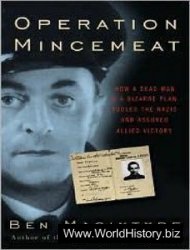Francesco Petrarca was born on July 20, 1304 at Arezzo. His father was a notary and the family, who had been banished from Florence 2 years previously, lived in moderate circumstances. In 1312 they moved to Carpentras, a small village in the vicinity of the papal seat at Avignon. Here Petrarch was educated in Latin grammar and rhetoric. He quickly developed a deep love of the Latin “classics”, especially of one author whom he was to favor throughout his life: Cicero.
In 1316, following his father’s wishes, Petrarch began to study law at near-by Montpellier. Immediately after his father’s death in 1326 he abandoned his studies without graduating. During this decade wasted on a topic he deeply disliked, Petrarch began writing poems in Italian vernacular. But most of all he spent his time devouring Latin poetry, philosophy, and historiography - anything he could get his hands on. The works of St Augustine, which he got to know in 1325 at the latest, left a vital impact on Petrarch’s sense of self and the world, as can be traced in his Secretum, completed in 1353. The influence exerted by St Augustine even exceeded that of Cicero.
Having taken minor orders, in 1330 Petrarch entered into the service of the Colonna family in Avignon as chaplain. In the following years Petrarch, who was financially well cared-for, traveled extensively, further developed his Italian poems, and started on several large-scale works in Latin. His renown grew constantly until finally, in 1341, he was crowned poeta laureatus in Rome. From then on, he was officially renowned as the supreme poet of his day, and holds this distinction even today.
In 1353, Petrarch finally left Provence and returned to Italy. He lived at the court of the Visconti in Milan until 1361, then with the Carrara in Padua, spent some time in Venice and Pavia, again lived with the Carrara, and from 1368 onwards stayed primarily in his country estate in Arqua near Padua. These years were filled with diplomatic missions, traveling at the behest of his patrons, but mostly he was occupied with studying, reading, and writing. Thus, in the seclusion of Arqud, in 1370 he not only wrote the exceedingly valuable autobiographical sketch Posteritati but also his programmatic philosophical work, De sui ipsius et multorum ignorantia.
In the night of July 18, 1374 Petrarch passed away in his country house - according to legend, with his books at hand.




 World History
World History









